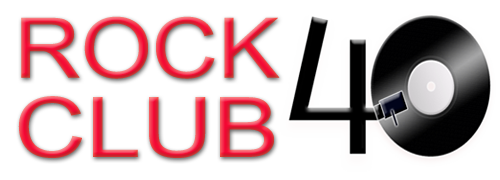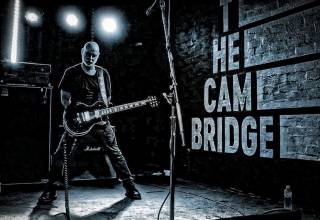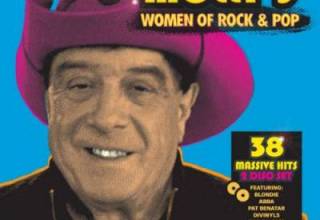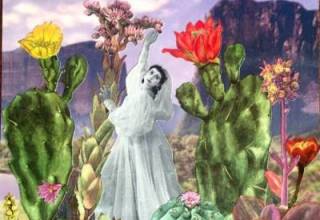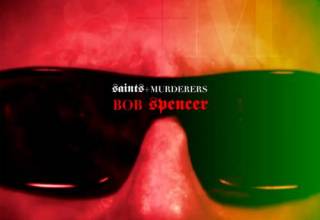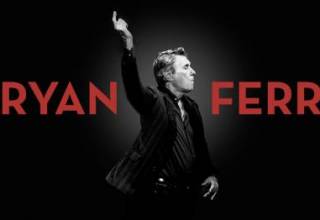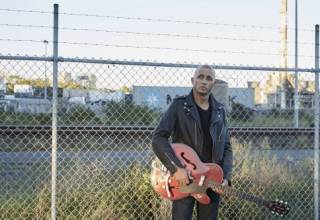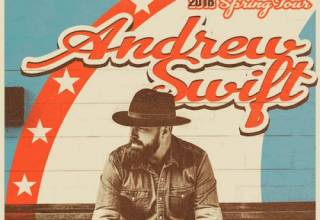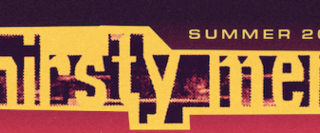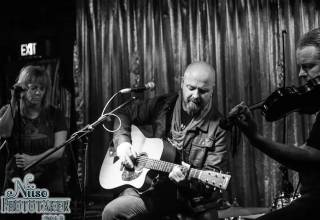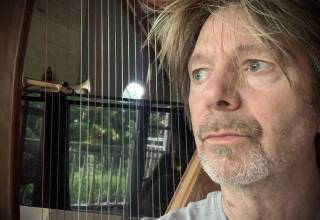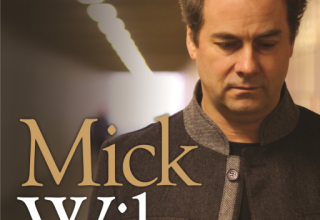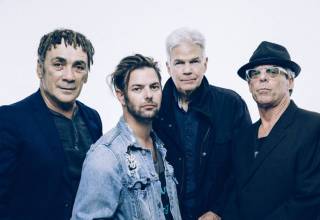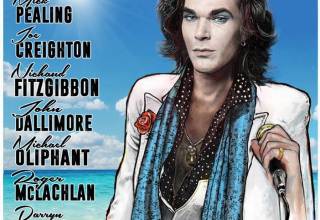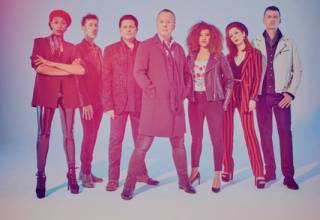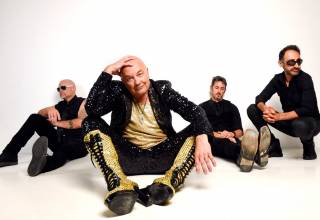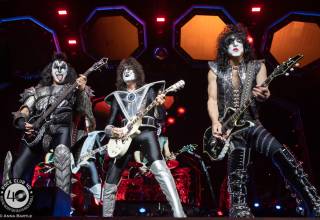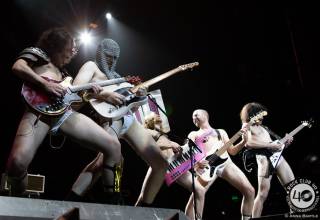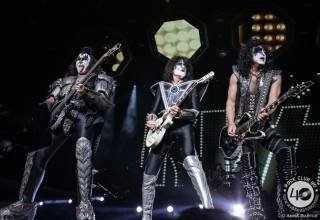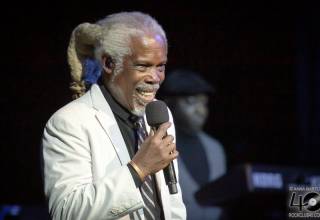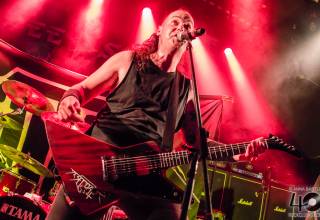
Mention ‘April Sun in Cuba’ or ‘Are You Old Enough’ to any rock and roll fan in this country, whatever their age, and chances are they would not only know the song but probably all the words as well. Dragon’s songs have became part of our musical landscape and it is reassuring to know that they are still being performed today, in some cases more than 30 years later, albeit in a somewhat different style to the one we are used to. In 2010, Dragon is a very different band to the original group we remember from the seventies or eighties. Of the original members, only bassist Todd Hunter remains. I spoke to him recently about the current Dragon and what finally persuaded him to get the band happening once again, after all these years.
Todd says that Dragon’s live shows these days encapsulate everything that the band has done to date. “Mark Williams is a great lead singer,” he tells me, “who’s got a very different energy from Marc Hunter. He just takes the songs and actually inhabits them so it sort of makes this incarnation of the band not a nostalgia band but it actually has validity in this day and age. It’s funny, songs like ‘Are You Old Enough’, which meant something in the seventies, are now like anthems and what’s happening now is that the crowd is as much a part of the band as the band is. It’s not like the band stands on stage and dishes it out to the crowd. Everybody sings. There’s an incredible feeling in the room every night. It’s not like these songs have to be played again, after ten years of nothing.”
It seems to me that many Dragon songs are timeless. “Well, they certainly do seem that way when you’re out there playing,” agrees Todd. “We’ve got to keep the immediacy and the enthusiasm going. Now, the crowds sing them.”
The band has seen numerous line up changes over the years and more than its fair share of tragedy along the way, with the untimely passing of Todd’s brother and lead singer, Marc Hunter, keyboardist and chief songwriter, Paul Hewson and drummer Neil Storey.
“It’s weird,” says Todd, “when you get a thousand people in a big venue, singing along… it’s like Marc and Paul and Neil are there. They live on through the songs. It’s great to be a part of. You know, there wasn’t a Dragon for ten years after Marc died. I did soundtrack work and it was like some distant thing that I wasn’t very happy about because I’d lost everyone.” But Todd found his way back to his passion through an unexpected source. “After a long time, I played at a parent/teacher thing at my kids’ school. The parents and teachers played and one of the other parents was Johnny Diesel so I just played bass to all the music all night and afterwards I thought ‘That was great! That’s what you do, you twat!’ I’d sort of forgotten. I’d been working in studios for so long, in terms of doing soundtrack work, and it’s a very solitary business. And about three out of the last five series I’ve done have come out of New York and London so you get up at five in the morning and you’re over at the studio and you’re talking to them on the net, back and forth and sending stuff. There’s no one else there. Sometimes, you spend weeks by yourself. It’s a very different kind of energy. In the end, it got too solitary. And I wanted that immediacy of playing live again.”
But Todd admits that, for a while there, the solitude was exactly what he needed. “It still is,” he says. “We live in Sydney on the weekends and here during the week.” ‘Here’ is a property located two and a half hours south of Sydney, in the mountains. “There’s a big valley and there’s a couple of houses, no street lights and no people. You can stay here for a week and not see one human being.”
“I’m always pottering around here,” he tells me. “This is just a barn that I’ve made into a studio and I’ve got all my crap in it. Everything’s here basically. There used to be a huge 24 track tuner and a great desk but it’s all gone now and it’s just me and the current Mac and everything runs by the computer. There were a hundred of those weird and wild and woolly instruments doing soundtrack work but I’m slowly trying to get rid of it all. I have young bands coming down and carting off old analogue systems because I’d much rather they were using them than having them sitting here like they were in a museum.”
While Todd might spend a fair bit of time in the studio, writing songs and ‘pottering around’, his main focus is on live performances. But life on the road is much different these days for Dragon. There’s no more touring the country with back to back gigs. “We play weekends only and quite often we’re at three separate places on the weekend,” he explains. “We only have our guitars when we fly and it’s incredibly mobile. There’s no crew, and we just get up and play. It kind of is, now, as it should have always been. The crowds are young. There are twenty year olds to forty year olds. It happens every decade that you play because a lot of our stuff is still on radio so everyone knows the songs. It’s just part of the background. And the crowd has changed. When we started, it was much more a nostalgia thing where people would come back and say ‘I remember seeing you in 1974’ and now there’s none of that. They’re just all kids who are singing these obscure songs. But that’s the great thing about I Tunes. All tunes exist. My kids know it all, music from all eras.”
The new Dragon evolved from an acoustic band, Todd explains, as a way of working into the Dragon repertoire on stage. “For the first six months or so, we couldn’t hear the band over the singing and we just got our electric guitars and stuff and started making a hell of a noise. We’re sort of playing harder all of the time now in order to get above the crowd to get the energy up there. I’m noticing too on I Tunes, the people who used to buy Dragon music, and who also buy James Reyne and Choirboys stuff are now buying Kings of Leon. So that’s sort of reframed. It’s interesting,” he muses. “I guess it sounds familiar and people get thrilled by something they recognise. But, saying that, we also play some new songs and the crowds are really incredibly supportive of the songs. It’s everything that everybody knows plus Mark does an a capella version of ‘Show No Mercy’ and sometimes somebody will start a song and we’ll just play it, like ‘Shout’ or ‘Message in a Bottle’ or whatever…”
Todd is very happy with the current Dragon line up and the way that the band just seemed to effortlessly fit together from the outset. “It’s a great band. It was a very simple thing of getting it together when I decided to play again. I just rang Mark Williams out of the blue and said ‘How about it?’ and he said ‘Yeah’ and then I asked the guy who was working in the studio who a great guitar player would be. He recommended Bruce. He worked with Wendy Matthews. I rang him up and said ‘Do you want to be in a band?’ and he said ‘Yeah, why not?’ and then he recommended Pete and so we all just got together in a room and started playing and that was it. There were no auditions. Everything just came together this time around.”
In 2008, Dragon was inducted into the ARIA Hall of Fame. It was a rather emotional night for the band and, clearly, the absence of Marc, Paul and Neil would have been felt by everyone in the room, making the experience somewhat bittersweet. But the accolade was well deserved and, in the minds of many, long overdue. Todd was chuffed at receiving the honour. “It wasn’t something you’d ever give a minute’s thought to. The night was very diverse. It went from The Triffids to Rolf Harris to Russell Morris being inducted. I had to overcome my phobia about having to speak in public,” he laughs, “because I had to give an acceptance speech.” He admits that was a bit scary. “You have to fit everything in and you don’t want to be boring, you don’t want to be pompous. It’s just about striking the right balance.”
by Sharyn Hamey
Copyright © Sharyn Hamey 2010. All rights reserved
For all of Dragon’s upcoming gig dates, go to our Touring Page
